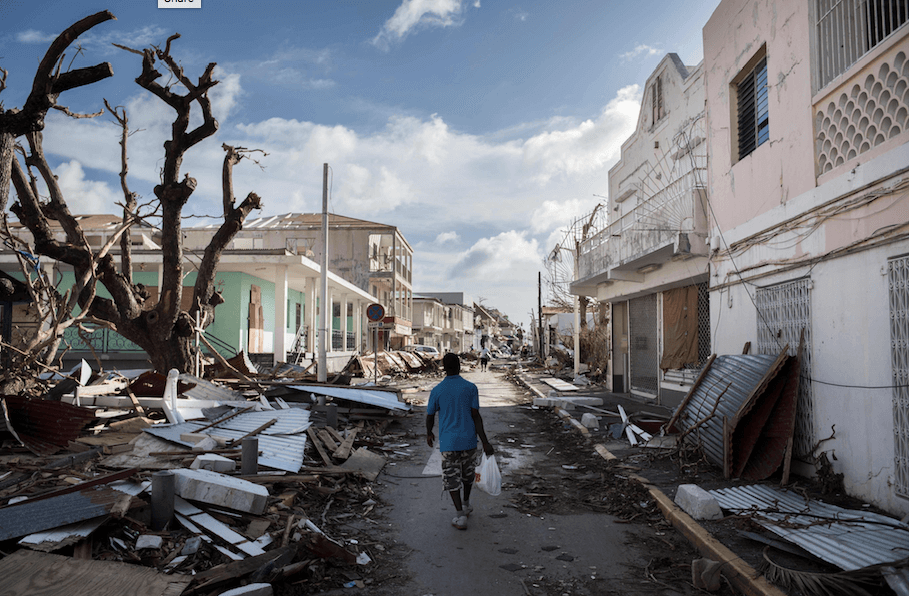by The Cowl Editor on September 14, 2017
Opinion

by Sarah Kelley ’18
Opinion Co-Editor
Over the past weekend, President Trump’s tweet, “Hurricane Irma is of epic proportion, perhaps bigger than we have ever seen…Federal G is ready!” caught my eye. I could not ignore the irony of this social media statement or stop myself from wondering how the President of the United States could really claim our federal government’s readiness when he does not even acknowledge the existence of climate change, let alone its impact on these high-intensity storms.
From Trump’s withdrawal of the U.S. from the United Nations Climate Change Conference agreement, to his administration’s efforts to derail the Environmental Protection Agency’s research and funding, our country’s leader is consistently turning away from a scientific reality that has already had devastating consequences.
Hurricane Harvey dumped an estimated 27 trillion gallons of rain throughout Texas and Louisiana during a six day period, breaking the national record for the most rainfall from a landfalling tropical cyclone and causing an estimated $75 billion in eventual losses. And with Irma now tearing through Florida, six million people have been left without electricity as high-power winds have torn down trees, powerlines, and anything else in the path of the storm, and these are just the initial reports.
Yet, Trump’s claiming that our nation was ready for these storms—without the full integration of scientific leadership within his administration—grossly misrepresents the reality of these hurricanes, whose destructive potential is in fact strengthened by climate change.
While we cannot conclude that climate change itself caused the devastating hurricanes Harvey and Irma, meteorologists confirm that increasing global temperatures have altered environmental factors that intensify the impact of these storms. With rising global temperatures come rising ocean levels, which can strengthen storm surges of hurricanes.
Sean Sublette, a meteorologist from Climate Central, explained the phenomena: “…higher sea levels mean that storm surge or the coastal flooding that occurs when a hurricane makes landfall is higher and reaches farther inland.” Furthermore, warmer temperatures precipitate higher rainfall levels, also exacerbating storm intensity and heightening the destructive potential of torrential downpours.
Many would hope that this scientific evidence in the wake of the devastation and destruction of these storms would sway Trump to perhaps consider the role of climate change in intensifying the horrific impacts of these storms. The gaping holes in scientific leadership within our federal government, however, have forced many scientists and citizens alike to believe otherwise.
President Trump has made clear on numerous occasions his disbelief in climate change science. These uninformed personal views of the president on an issue of such global significance have consequently left vacant numerous scientific and technological leadership positions within our government.
The Office of Science and Technology Policy is understaffed, the White House is void of any in-house science advisors, and even our National Oceanic and Atmospheric Administration lacks a chief. Trump has no right to claim our nation’s readiness to face these catastrophic storms, let alone any natural disasters, if our Federal Government lacks evidence-based scientific leadership and scientific advisors guiding a concurrent long-term action plan to address climate change.
We as a nation cannot allow an issue of such high stakes as climate change to continue to be pushed aside by presidential leadership if we hope to be truly ready to address current and future natural disasters, let alone global sustainability.